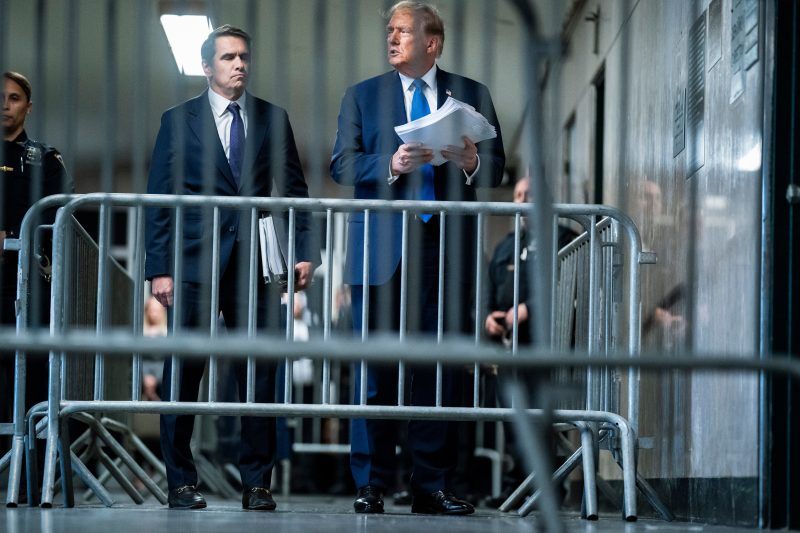
Americans Call for Justice: Trump Deemed Guilty, But Prison Not the Answer
The trial of former President Donald Trump captivates the nation as Americans are divided on whether he should be held accountable for his actions. Amid the call to Lock Him Up, public opinion wavers on whether imprisonment is the appropriate course of action. The debate highlights a polarized society grappling with the aftermath of a tumultuous era in American politics.
In the court of public opinion, Trump’s guilt is widely acknowledged. His role in inciting the January 6th insurrection at the U.S. Capitol remains a stain on his legacy, with many Americans holding him responsible for the chaos and violence that ensued. The images of the Capitol siege are seared into the collective memory, serving as a stark reminder of the fragility of democracy.
However, when it comes to the question of punishment, the consensus is less clear. While there is a vocal segment of the population clamoring for Trump to be held accountable through imprisonment, others are hesitant to go down that path. The concerns range from fears of further inflaming political tensions to doubts about the efficacy of incarceration as a form of justice.
One argument against imprisoning Trump is rooted in the desire to move forward as a nation. Some Americans believe that focusing on punishment for past actions may only serve to deepen divisions and hinder progress towards healing and reconciliation. The idea of turning the page and looking towards the future resonates with those who are weary of the constant political turmoil that has gripped the country in recent years.
On the other hand, proponents of holding Trump accountable through imprisonment point to the importance of upholding the rule of law and ensuring that no one, regardless of their position or power, is above the law. They argue that failing to hold Trump accountable would set a dangerous precedent and undermine the very foundations of democracy. For them, justice must be served to prevent similar abuses of power in the future.
As the debate rages on, one thing is clear: the question of Trump’s fate is emblematic of larger societal fissures that will not easily be bridged. It underscores the deep divisions that exist in American society and the challenges of finding common ground in an increasingly polarized political landscape. The outcome of this trial will not only determine the fate of one individual but also shape the future trajectory of the nation as a whole.
In the end, whether Trump should be imprisoned or not is a complex and nuanced issue that defies easy answers. It is a question that speaks to the heart of what kind of society we aspire to be and what values we hold dear. Whatever the outcome, the trial of Donald Trump serves as a potent reminder of the enduring power of democracy and the imperative of holding leaders accountable for their actions.
